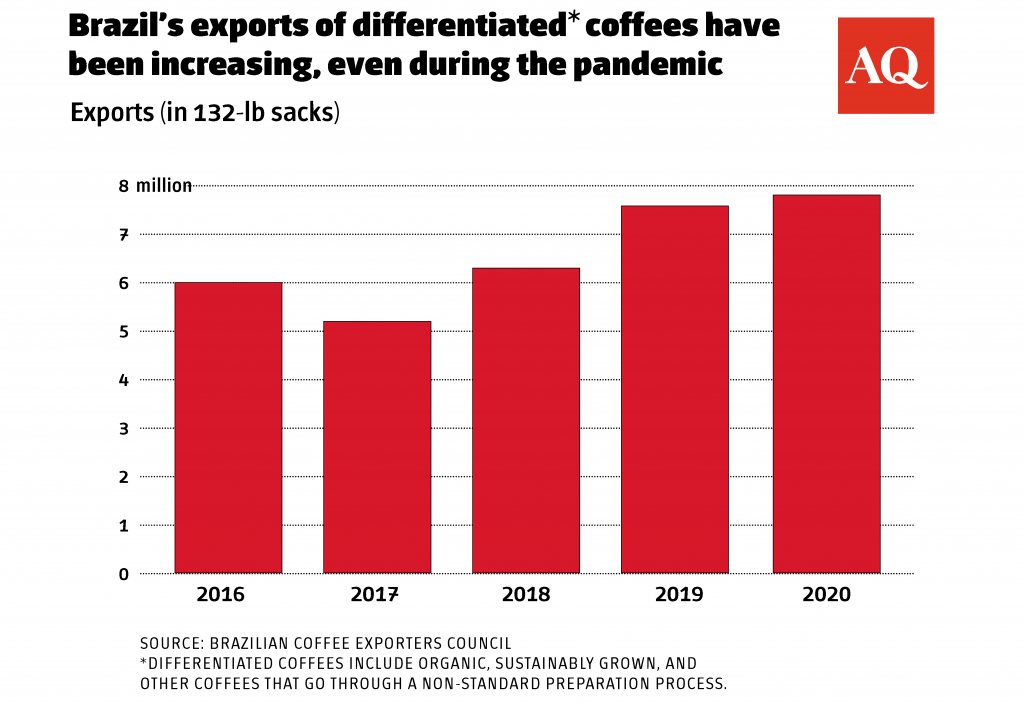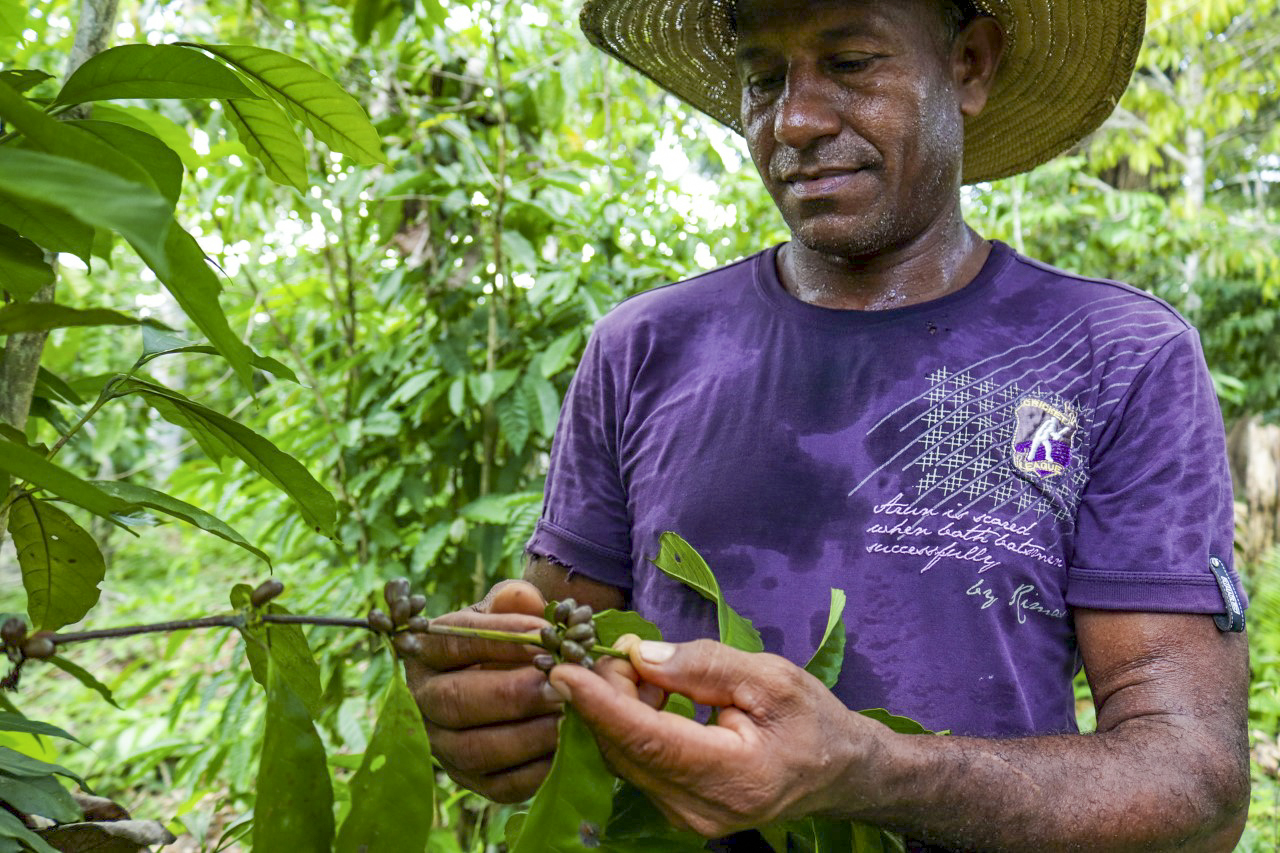Founded 2014
Annual revenue $38,000 (2020)
Revenue growth 47% (2020)
Jobs created
40 families benefited
Global market value of coffee
At least $200 billion (projected)
Global market value of organic coffee
$6.8 billion (2018)
This article is part of AQ’s special report on sustainable development of the Amazon.
In a swath of the Amazon that cattle ranching has turned into Brazil’s “new frontier of deforestation,” one company is helping farmers find an alternative in coffee – and regenerating deforested land in the process.
Launched by the Institute of Conservation and Sustainable Development of the Amazon (IDESAM), Café Apuí Agroflorestal (Apuí Agroforestry Coffee) took root in 2012 when IDESAM staff met Maria das Dores, a small-scale farmer. Das Dores and her husband had abandoned an unprofitable plot of coffee bushes. To everyone’s surprise, IDESAM found that the crop was quietly thriving amid the encroaching forest.
Today, the couple is among 40 families cultivating coffee for Café Apuí by intercropping native trees with coffee. The method improves soil fertility and provides shade for coffee bushes, which grew wild in the forest before coffee’s mass commodification centuries ago. The families have seen their coffee’s productivity double using the method, and their incomes have grown at least 300%.
The approach shows it’s possible to “produce in a way that dialogues with the forest,” said Felipe Villela, co-founder of reNature, an NGO helping Café Apuí connect to markets and funding.
Many other farmers in Apuí, a municipality in Amazonas state, have since the 1980s traded coffee farming for cattle ranching, resulting in 1,100 square miles of forest cut down, mostly for pasture. Between 2013 and 2018, deforestation in the municipality was more than double the rate for the entire Brazilian Amazon.
But since 2015, Café Apuí has reforested nearly 100 acres, with a five-year goal to reforest 600 hectares (1,483 acres) farmed by 600 families.
“We want to provide a new, sustainable model for farmers,” said Pedro Soares, a manager at IDESAM.

After a round of investor funding, Café Apuí transitioned into a startup in 2020, with IDESAM owning 51% of its shares. Its certified-organic blends are for sale online, and in 2020 the company made its first shipment to a Dutch producer of Nespresso pods. As the “first coffee sustainably produced in the Amazon,” (according to the company) Café Apuí’s specialty status – and the premium price that entails – is a key plank in its business model.
Annual revenues grew 47% in 2020, but the company hasn’t broken even yet. The logistics of rainforest production entail high costs, which the company and IDESAM work to offset through grants from international funders and the sale of carbon credits.
“There’s a market out there” for Café Apuí, said José Sette, the executive director of the London-based International Coffee Organization. In 2020, Brazil increased its exports of differentiated coffees, which include organic and sustainably grown beans, by 4.4% over 2019, reaching a value of $1.29 billion. “There are challenges involved, but it’s certainly viable.”




